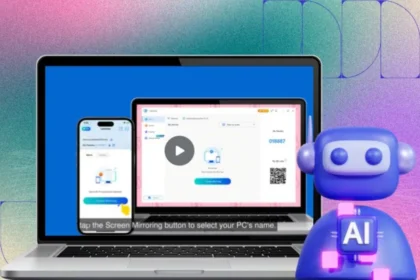Intel competes in the AI accelerator market, but is also set to introduce dedicated AI hardware in its PC chips. Given Intel’s dominant market share, software vendors have many reasons to support and use Intel’s AI hardware. Powerful AI features could help boost demand for personal computers, creating a multifaceted opportunity for companies like Intel.
According to Hoshio, Intel is looking for opportunities created by artificial intelligence in different ways. Using the most advanced AI models generally requires powerful AI accelerators installed in cloud data centers and requires a lot of memory and computation.
The market for such AI accelerators is growing, and Intel has several ways to take advantage of this growth potential. The company’s specialized Gaudi AI chips are getting a lot of attention, and in some cases can outperform Nvidia’s market-leading GPUs. Intel also sells data center GPUs that can accelerate a wider range of workloads.
But Intel CEO Pat Gelsinger doesn’t believe AI will stay in the data center. The company is building AI into all of its products, and the long-term AI opportunity for Intel goes far beyond AI accelerators.
Pervasive artificial intelligence
Beyond dedicated AI accelerators, Intel is also targeting data-centric AI workloads through its server CPU business. Launched after multiple delays earlier this year, Intel’s Sapphire Rapids chips have built-in AI accelerators aimed at AI inference tasks. While training AI models requires powerful AI chips, Sapphire Rapids provides a way to efficiently run some of these models on data center CPUs. Intel estimates that a third of Sapphire Rapids sales are driven by AI use cases.
Intel is competing for data center AI workloads, but the company is also betting on bringing AI closer to end users.
Intel is set to launch its Meteor Lake PC CPUs this year, and for that AI is a focal point. Meteor Lake will feature dedicated AI hardware capable of accelerating a variety of AI workloads and is logical to run directly on a user’s PC. You can’t run a large language model on your laptop, but a lot of lighter AI workloads can be offloaded from the CPU and speed up significantly.
Intel’s AI hardware must be supported by software to work, but software providers have a strong incentive to use Meteor Lake’s AI. For example, a video conferencing software provider can save money by using the client’s device to power AI features instead of relying on expensive cloud-based AI accelerators.
As Intel brings AI hardware to PCs with Meteor Lake and future chip families, the sheer volume of devices will force developers and software providers to embrace new hardware.
While rival AMD offers dedicated AI hardware in some of its latest laptop chips, Intel’s share of the x86 processor market, excluding gaming consoles and the Internet of Things, is currently above 80 percent. For software providers, it would make a lot of sense to support Intel’s AI hardware.
Artificial intelligence is a multifaceted opportunity
While Nvidia stands to benefit the most from increased demand for AI accelerators, Intel has more ways to take advantage of long-term AI demand. The company sells its AI accelerators and data center processors with AI capabilities, will soon start shipping computer processors with AI hardware, and in its business could produce AI chips for others within the next few years.
There will be many winners in the field of artificial intelligence, and Intel seems to be one of them.

RCO NEWS

















